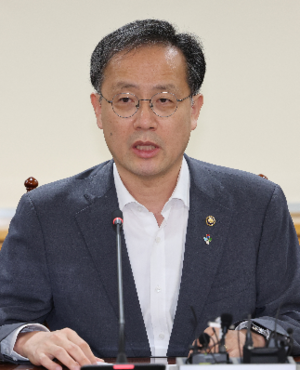South Korea’s Acting Finance Minister Cautions on Economic Instability
South Korea’s acting Finance Minister Lee Hyoung-il issued a stern warning on Monday about potential economic volatility arising from escalating tensions in the Middle East. Speaking at a high-level meeting on macroeconomic trends and risk management at the government complex in Seoul, Lee emphasized the government’s commitment to closely monitoring global developments and their impact on Korea’s economy.
Heightened Global Uncertainty
Lee pointed to increasing geopolitical risks stemming from the Middle East, notably the conflict involving Iran and Israel, as key drivers of global economic uncertainty. He noted that these tensions could trigger disruptions in global energy markets, leading to potential spikes in oil prices, inflationary pressure, and volatility in financial markets worldwide.
“We must remain vigilant amid the rise in geopolitical instability,” Lee said. “The Korean economy is not isolated from these risks, and we are preparing measures to minimize the impact on domestic markets.”
Government Readiness and Mitigation Plans
To address potential economic shocks, the Ministry of Economy and Finance is working in coordination with other relevant agencies to strengthen monitoring and policy responses. Lee highlighted that the government is prepared to implement stabilization measures, including currency market interventions and energy supply adjustments, should the situation worsen.
“We are ready to take swift and decisive action if necessary,” he stated. “Our primary goal is to protect the Korean economy and ensure stability in the financial and commodity markets.”
Impact on Domestic Economy and Inflation
Economic analysts in South Korea have expressed concerns that continued instability in the Middle East could drive up global oil prices, which would have a direct effect on Korea’s import costs and consumer prices. The nation, heavily reliant on energy imports, is particularly sensitive to oil market fluctuations.
Lee acknowledged these risks, noting that inflationary pressures could intensify. “If oil prices continue to climb, we may see a rebound in inflation, which had shown signs of easing in recent months,” he said.
To counter this, the government is reviewing potential subsidies and support mechanisms to help ease the burden on households and businesses.
Financial Market Volatility
Beyond inflation, financial markets are also bracing for turbulence. The Korean won has experienced fluctuations in recent weeks, and equity markets have shown signs of nervousness amid global uncertainties.
Lee reaffirmed that the government and the Bank of Korea are jointly monitoring currency and stock markets, ready to intervene if excessive volatility occurs. “We are closely watching capital flows and exchange rate movements,” he said. “Maintaining market confidence is essential.”
International Cooperation
Lee also highlighted the importance of international cooperation during times of crisis. He stated that South Korea is in active discussions with global financial institutions and economic partners to share information and coordinate responses to economic disruptions.
“In an interconnected world, no country can tackle these challenges alone,” he said. “We are enhancing our cooperation with international bodies such as the IMF, World Bank, and G20 partners to ensure a coordinated and effective response.”
Forward-Looking Measures
Looking ahead, the Finance Minister noted that the government is committed to enhancing economic resilience through structural reforms and long-term planning. This includes diversifying energy sources, boosting domestic demand, and investing in key industries to reduce external vulnerabilities.
“We must use this crisis as an opportunity to strengthen the foundations of our economy,” Lee concluded. “By preparing thoroughly and responding flexibly, we can navigate through the uncertainties and emerge stronger.”
Market Reactions and Public Sentiment
Following Lee’s remarks, market analysts welcomed the government’s proactive stance but cautioned that much depends on how the geopolitical situation evolves. Public sentiment remains cautious, with many Koreans concerned about rising living costs and economic instability.
The Finance Ministry has pledged to communicate transparently with the public and to provide timely updates as the situation develops.
This article is inspired by content from The Korea Herald. It has been rephrased for originality. Images are credited to the original source.

